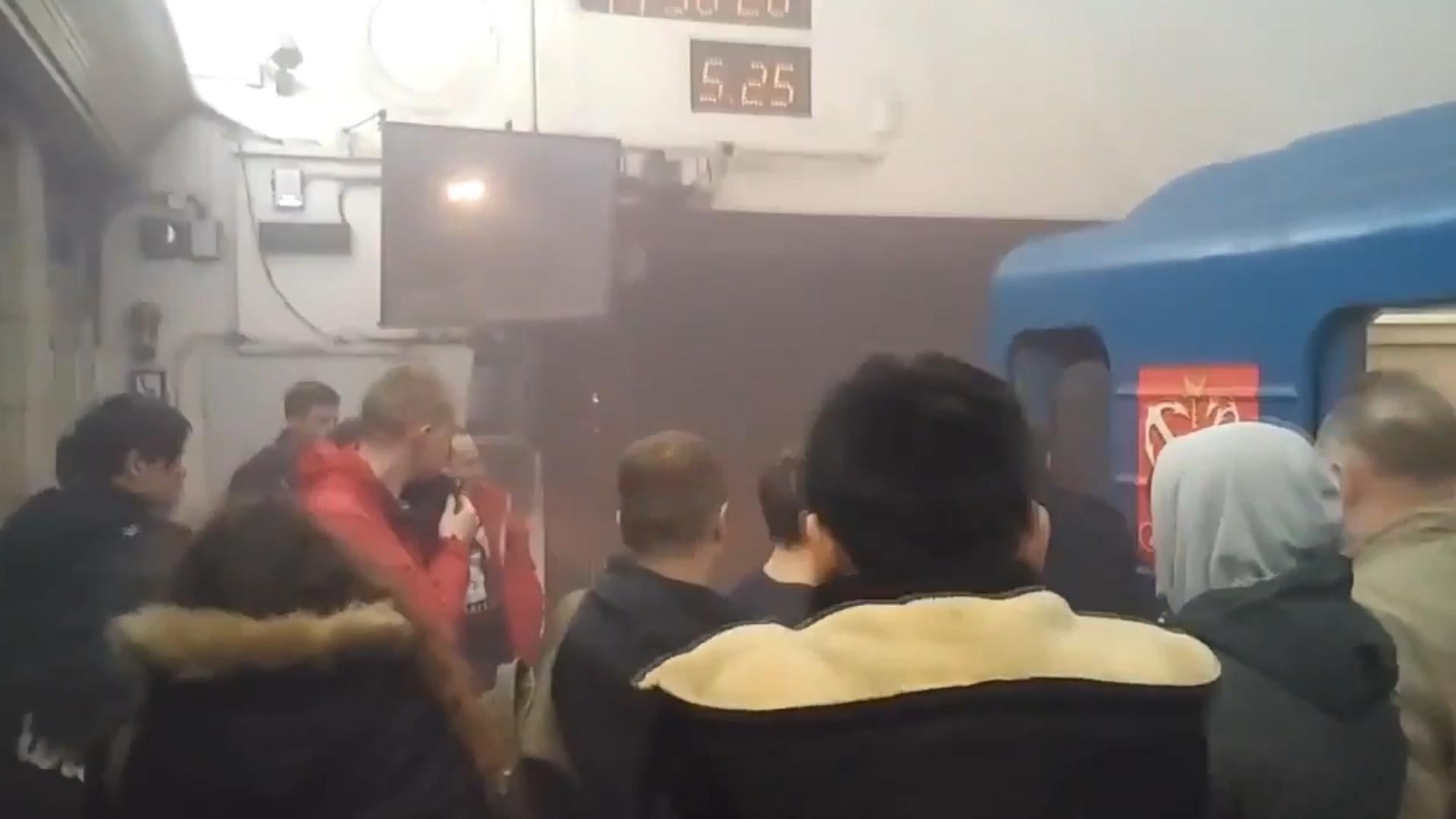Russia attack: Death toll rises to 14 from St Petersburg metro suicide bombing
Figure rises from 11 as security services release identity of one suspected attacker

Your support helps us to tell the story
From reproductive rights to climate change to Big Tech, The Independent is on the ground when the story is developing. Whether it's investigating the financials of Elon Musk's pro-Trump PAC or producing our latest documentary, 'The A Word', which shines a light on the American women fighting for reproductive rights, we know how important it is to parse out the facts from the messaging.
At such a critical moment in US history, we need reporters on the ground. Your donation allows us to keep sending journalists to speak to both sides of the story.
The Independent is trusted by Americans across the entire political spectrum. And unlike many other quality news outlets, we choose not to lock Americans out of our reporting and analysis with paywalls. We believe quality journalism should be available to everyone, paid for by those who can afford it.
Your support makes all the difference.Russian authorities say the blast on a St Petersburg metro train that killed 14 people on Monday afternoon was a suicide bombing, carried out by a 22-year-old Kyrgyzstan-born Russian citizen.
The death toll from the attack rose to 14 on Tuesday, according to Russian health minister Veronika Skvortsova, including Akbarzhon Dzhalilov, identified as the bomber first by Kyrqyz and then Russian officials.
The nation’s top investigative agency said 10 of the dead have been identified and that genetic tests would be required to identify the rest. Of those 10, seven were born after 1990.
There was no immediate claim of responsibility for the attack, which came while President Vladimir Putin was visiting the city, Russia’s second biggest and Mr Putin’s hometown.
But Russian media carried photos of Dzhalilov on station TV shortly before the bombing, and the Interfax news agency reported that authorities believe the suspect was linked to radical Islamist groups.
Another 49 victims were in hospital, some of them in life-threatening condition.
Russia’s Investigative Committee, the top investigative agency in the country, said forensic experts had also found Dzhalilov’s DNA on the bag with a bomb that was found and deactivated at another subway station in St Petersburg on Monday. In Kyrgyzstan, the State Committee for National Security confirmed the man’s identity and said it would help the Russian probe.
The entire subway system in St Petersburg, a city of five million, was shut down and evacuated before partial service resumed six hours later. Typically crowded during the rush hour, the subway on Tuesday morning looked almost deserted as many residents opted for buses.
And in a sign of an ongoing heightened security situation, emergency officials closed four metro stations following reports of a new bomb threat.
The Sennaya Square station in the city centre was cordoned off, and commuters were told via a PA announcement that three more stations had also been closed down. The stations were later re-opened.
Monday’s explosion occurred as the train travelled between stations on one of the city’s north-south lines. The driver appeared in front of reporters on Tuesday looking tired but not visibly shaken by the events of the previous day.
Alexander Kavernin, 50, who has worked on the subway for 14 years, said he heard the sound of a blast while his train was running, called security and carried on to the next station as the emergency instructions prescribe.
“I had no time to think about fear at that moment,” he said.
The decision to keep moving was praised by authorities, who said it helped evacuation efforts and reduced the danger to passengers who would have had to walk along the electrified tracks.
In the past two decades, Russian trains and planes have been frequent targets of attack, usually blamed on Islamic militants.
The last confirmed attack was in October 2015 when Islamic State militants downed a Russian airliner heading from an Egyptian resort to St Petersburg, killing all 224 people on board.
The Eiffel Tower will remain dark overnight to honour the victims of the St Petersburg bombing, Paris Mayor Anne Hidalgo said in a tweet.
But officials in Berlin were criticised for not bathing the Brandenburg Gate in the colours of the Russian flag, even though the city in the past has lit the gate with colours of various countries that have suffered terror attacks.
Additional reporting by agencies
Join our commenting forum
Join thought-provoking conversations, follow other Independent readers and see their replies
Comments